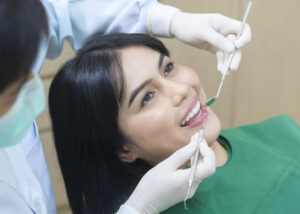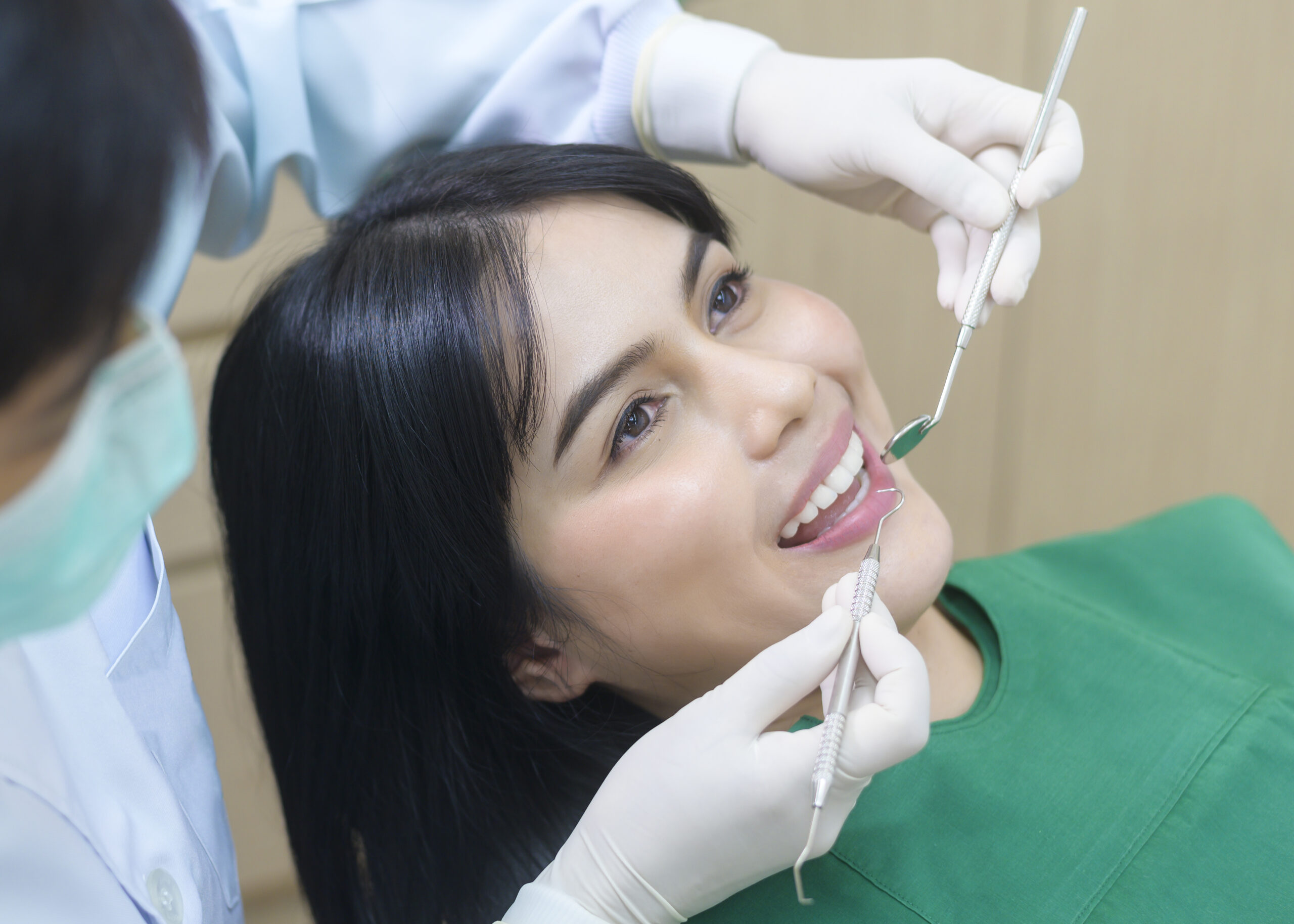Written by Jessica Patella, ND. The researchers found resveratrol was helpful as a complement to other periodontal treatments.
 The NIH states that periodontal disease is a public health concern with an estimated 42.2% of U.S. adults over the age of 30 with periodontitis1. The percentage increases to 59.8% in all adults over the age of 651. Since periodontitis is an inflammatory disease, researchers wanted to test if resveratrol, an anti-inflammatory supplement, would improve clinical markers of the disease2. Researchers found it was helpful as a complement to periodontal treatments2.
The NIH states that periodontal disease is a public health concern with an estimated 42.2% of U.S. adults over the age of 30 with periodontitis1. The percentage increases to 59.8% in all adults over the age of 651. Since periodontitis is an inflammatory disease, researchers wanted to test if resveratrol, an anti-inflammatory supplement, would improve clinical markers of the disease2. Researchers found it was helpful as a complement to periodontal treatments2.
Periodontitis is an inflammatory disease that leads to the breakdown of gum tissue and ultimately tooth loss2. The main pathogen related to periodontitis is Porphyromonas gingivalis, which increases proinflammatory cytokines (IL-1beta, IL-8, IL-6, TNFalpha) and ultimately causes inflammation in the gingival connective tissue2,3. The main forms of treatment include non-steroid anti-inflammatory drugs (NSAIDs), selective COX-2 inhibitors and antibiotics, however all have systemic complications, resulting in the search for natural options2,4,5. Resveratrol is a polyphenol found in grapes, peanuts and cranberries2,6. Resveratrol is an antioxidant and anti-inflammatory compound and has been shown to improve collagen production and attachment to the periodontium, therefore chosen as an option in this study2,7.
The research included 40 participants with moderate to severe periodontitis (stage II-IV based on clinical attachment loss (CAL) of greater than 3mm around the teeth). The participants were randomly assigned to either resveratrol (480 mg daily; n=20) or the control group (480 mg starch placebo daily; n=20) for 4-weeks. Salivary samples of all the participants were collected at baseline and four weeks after the intervention to assess inflammation (IL-8, IL-1beta)2. All participants received scaling and root planning by an ultrasonic scaler at baseline.
After 4-weeks of supplementation or placebo the following results were observed:
- The average distance between the gingival margin and the pocket depth improved almost to significance in the resveratrol group compared to the control group after 4-weeks (Resveratrol: 4.44 mm to 2.82 mm vs Control: 4.27mm to 3.2 mm; p=0.06)
- The average Clinical Attachment Loss improved in both groups compared to baseline (Resveratrol: 5.17 mm to 3.37 mm, Control: 4.97 mm to 3.74 mm; p=0.0001, between group value p=0.05).
- The average bleed index also improved in both groups (Resveratrol: 80.25% to 29.10%, Control: 70.80% to 32.40%; p=0.0001, between group value p=0.20)
- The average plaque index also improved in both groups and reached significance after intervention in the resveratrol group compared to the control group after 4-weeks (Resveratrol: 76.10% to 24.05%, Control: 75.60% to 34.90%; p=0.0001, between group value p=0.0001)
- There were no significant changes in the inflammatory marker results for either group
In conclusion, a significant difference with resveratrol supplementation was only observed in the plaque index after 4-weeks of supplementation. Due to the fact that oral hygiene, including scaling and rooting, is a key treatment and was given to both groups at baseline, it is likely the reason both groups showed significant improvement from baseline. The researchers suggest local treatment or local injection with resveratrol as a future option, since oral resveratrol has limited bioavailability. Future research should also consider a larger sample size and longer intervention period2.
Source: Nikniaz, Shabnam, Farzane Vaziri, and Reza Mansouri. “Impact of resveratrol supplementation on clinical parameters and inflammatory markers in patients with chronic periodontitis: A randomized clinical trail.” BMC Oral Health 23, no. 1 (2023): 177.
© The Author(s) 2023. Open Access
Click here to read the full text study.
Posted November 11, 2025.
Jessica Patella, ND, is a naturopathic physician specializing in nutrition and homeopathic medicine and offers a holistic approach to health. She earned her ND from Sonoran University (formerly Southwest College of Naturopathic Medicine in Tempe, AZ). Dr. Patella has been involved in research since high school, when she presented her research at University of Florida on Group B Strep in pregnant women. While earning a bachelors in exercise physiology at Florida State University, her honors research was examining lifestyle effects on glucose levels in women. Dr. Patella was also a research assistant while in naturopathic medical school and has been writing for the Natural Health Research Institute since she graduated from Sonoran University in 2009. Dr. Patella currently teaches a variety of classes all related to human health.
References:
- Research NIoDaC. Periodontal Disease in Adults (Age 30 or Older). Accessed 10/29/25, 2025. https://www.nidcr.nih.gov/research/data-statistics/periodontal-disease/adults
- Nikniaz S, Vaziri F, Mansouri R. Impact of resveratrol supplementation on clinical parameters and inflammatory markers in patients with chronic periodontitis: a randomized clinical trail. BMC Oral Health. Mar 27 2023;23(1):177. doi:10.1186/s12903-023-02877-4
- How KY, Song KP, Chan KG. Porphyromonas gingivalis: An Overview of Periodontopathic Pathogen below the Gum Line. Front Microbiol. 2016;7:53. doi:10.3389/fmicb.2016.00053
- Queiroz-Junior CM, Pacheco CM, Maltos KL, Caliari MV, Duarte ID, Francischi JN. Role of systemic and local administration of selective inhibitors of cyclo-oxygenase 1 and 2 in an experimental model of periodontal disease in rats. Journal of periodontal research. Apr 2009;44(2):153–60. doi:10.1111/j.1600-0765.2007.01069.x
- FitzGerald GA, Patrono C. The coxibs, selective inhibitors of cyclooxygenase-2. The New England journal of medicine. Aug 9 2001;345(6):433–42. doi:10.1056/nejm200108093450607
- Udenigwe CC, Ramprasath VR, Aluko RE, Jones PJ. Potential of resveratrol in anticancer and anti-inflammatory therapy. Nutr Rev. Aug 2008;66(8):445–54. doi:10.1111/j.1753-4887.2008.00076.x
- Preshaw PM, Hefti AF, Jepsen S, Etienne D, Walker C, Bradshaw MH. Subantimicrobial dose doxycycline as adjunctive treatment for periodontitis. A review. J Clin Periodontol. Sep 2004;31(9):697–707. doi:10.1111/j.1600-051X.2004.00558.x







Comments (0)